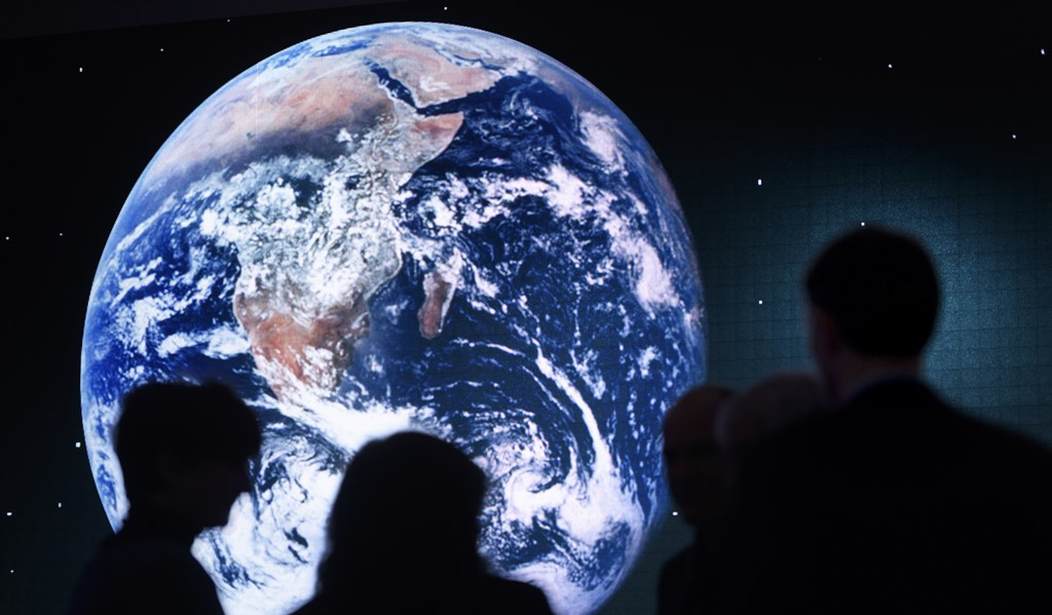According to a panel at the United Nations (yes… I know) today was a special day. This is the day that the human population on Earth was projected to surpass eight billion. If that sounds like a staggering number to you, that’s because it is. Of course, seven billion, six billion, and five billion were pretty staggering as well and somehow most of us are still motoring along. The United Nations was celebrating this milestone as something to be proud of, attributing it to “advancements in health,” extended lifespans, and reduced maternal and child mortality rates.
All of that is probably true, or at least those are factors that played a role in this steady, overwhelming growth. The U.N. is also calling on the world to recognize this moment as an opportunity to “celebrate our diversity.” (Because of course they would.) Though one could plausibly argue that through systemic interbreeding, we’re really becoming less and less diverse with every passing generation, at least in countries that experience large amounts of immigration. But putting all of that aside for a moment, perhaps we should be asking if continued population growth at the rates we’re experiencing now is actually something to celebrate at all. (USA Today)
The global population projects to reach 8 billion people Tuesday, the United Nations says, in a historic milestone for humanity as the organization gives a look into what the future could look like.
The U.N. praised the population growth as mortality levels decline and life expectancy continues to increase. The global life expectancy is 72.8 years as of 2019, an increase of nearly nine years since 1990. Current projections believe the life expectancy could be 77.2 years by 2050.
“This is an occasion to celebrate our diversity, recognize our common humanity, and marvel at advancements in health that have extended lifespans and dramatically reduced maternal and child mortality rates,” U.N. Secretary-General António Guterres said in a statement.
The first thing I wanted to point out is that this “holiday,” if you want to call it that, is nonsense because we don’t really have any idea how many people are on the planet at a given moment. You couldn’t come up with a dead-accurate population figure for the city of Los Angeles on any given day. Many parts of the world still don’t do much in the way of accurate census work and there are underdeveloped areas where all you can do is guess how many people there might be.
But with that being said, the global human population is indeed massive and eight billion is probably a fair number somewhere in the ballpark. This figure may sound incongruous when compared to some other data we’ve analyzed here in the past, however. Several advanced nations, including the United States, have been experiencing extended periods of lower birth rates, measurably below what is considered the “replacement level.” And that’s happening at the same time that America’s average life expectancy has ceased increasing and has actually dropped a bit in recent years. In fact, if it weren’t for immigration, the population of the United States would actually have shrunk slightly over the past several years. Serious population growth is taking place in less developed nations.
You may be thinking, ‘so what? The population is always growing.’ That’s mostly true in general terms but doesn’t reflect the revolutionary era the planet is going through now. Keep in mind that modern humans, “Homo sapien sapiens,“ have been around for at least 160,000 years according to the fossil record, and possibly longer. And yet as recently as 10,000 BCE, there were still barely 4 million of us on the entire planet. Fast forward to the time of Christ and we were still only at 190 million. We didn’t break the one billion mark until the early 1800s. That additional seven billion in growth all happened in a little over two centuries. The word “unprecedented” doesn’t even begin to describe it.
The point is, we are living through an experiment that’s never been run before and it’s not impossible that we’re close to the end of it. As we’ve discussed here in the past when debating related topics involving the potential end of the world, up until the middle ages, most humans harvested or produced nearly all of the food that was required in individual communities. If one community was wiped out through warfare of a fresh wave of the plague, the other communities would be relatively unaffected.
Today, we rely on godlike technology to produce enough food to feed all of the people on this planet. Other futuristic (to men from earlier centuries) technology allows us to move it efficiently around the globe. If that technology is largely wiped out through any highly impactful mechanism, we’re going to have at least seven billion more people on the Earth than we will be able to feed. That’s when you’ll see a very dramatic “correction,” assuming you are one of the lucky few who manages to survive.
So is there anything we can do about this? I’ve yet to hear anyone put forward a workable proposal. It’s too big of a problem to wrap our heads around. Attempting to intentionally depopulate the planet to sustainable levels is an abhorrent thought to most of us, and smaller populations of young, productive people would soon be unable to care for the needs of the far more numerous elderly. It’s almost as much of an apocalyptic scenario as the one I described above, only it would play out a bit more slowly and painfully.
So, in closing, I don’t really have any answers. Thankfully I’m not the smartest person on the planet. (I’m probably not the smartest person in this room and I’m sitting here with two cats and a small dog.) But hopefully, some smarter folks than me are working on this issue because if everything goes south in a serious way, it may take us all by surprise and the end of that story is not pretty at all.








